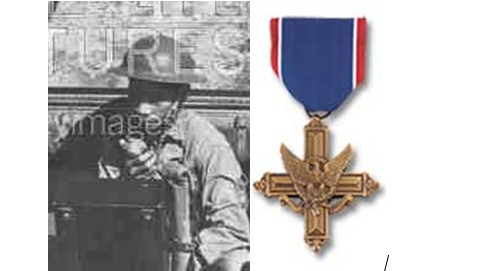Sgt. Dulcesimo Habal
Born in Casiguran, Philippines in1914; Dulcesimo Habal Joined the Philippine Scouts in 1935. In 1941, Habal was with the 57th Infantry Regiment Philippine Scouts, an elite corps fighting under U.S. Army command. By the time war broke out, he was a 27 year old sergeant working as a radio operator.
On January 9, 1942, the Japanese who landed in Lingayen Gulf were now nearing the Vicinity of Samal, Bataan, War Plan Orange was now in effect and the defense of Bataan, planned by Mac Arthur himself was holding on. The Japanese force attacked in a pincer like movement as it made contact with the First line of Defense. They faced the 57th Infantry of the Philippine Scouts. The 57th Infantry made a gallant stand against the enemy and after several days of defending their sector, the Company was losing men and equipment and need to pull back and reorganize. An order to retreat was issued and they were able to move men and materiel to the next position. But to do it effectively, they need eyes and ears in the front to keep them abreast on the enemy movement.
Sgt. Habal volunteered to keep watch. When the Japs came near Habal’s unit, he sent his crew to the rear while he kept on with his mission. Habal kept sending information on enemy strength and position until eventually the Japs bypassed Sgt. Habal and his radio set.
Although his company had retreated from the invading Japanese, Habal and his radio remained behind enemy lines. Finally, with his mission accomplished and his company digging in for the next Japanese onslaught, he moved out of the Japanese held territory alone. On this heroic day in January 1942, he forded three rivers as the bridges had been blown up and destroyed by the Corps of Engineers to stall the Japanese advance. Gunshots rang out from the enemy positions as he crossed open fields and rivers. While on the move he was still on radio contact and was able to radio his warnings to his comrades.
“Had it not been for my radio,” Habal told The Times in 1998, “they would have been massacred by the Japanese.”
Habal continued fighting on the Bataan Peninsula until the Filipino and American Forces were defeated four months later at Corregidor. He was taken prisoner and prodded along on the infamous 60-mile Bataan death march, which claimed 10,000 lives.
“If you couldn’t walk, they’d get the bayonet and kill you right there,” he recalled in 1998.
But Habal escaped during the trek toward the Japanese internment camp and joined guerrillas for the duration of the war. He was officially listed as missing in action from 1942 to 1945.
Habal served in the Korean War and then moved his family to San Pedro, California. While stationed at Ft. MacArthur, Habal earned degrees in electronics engineering, at Harbor Junior College and Cal State Long Beach so he could get a “good civilian job” after his military retirement.
“America is the only place in the world,” he told The Times in 1954, “where we as a family can be educated without being wealthy.”
Commissioned a Major in the US Army, Habal later moved to Monterey, where he was an instructor at Ft Ord until his retirement in 1965.
In addition to the Distinguished Service Cross, Habal, earned a Bronze Star, a distinguished unit citation with two oak leaf clusters and a combat infantryman badge with two stars, among other awards.
In 1998, he was among several decorated Pacific Islanders and Asian Americans whose records were reviewed for possible receipt of the Medal of Honor. Inspired by a similar reexamination of military heroism of blacks, Sen. Daniel K. Akaka (D-Hawaii) suggested that many worthy Filipinos and others might have been overlooked because of racial discrimination. Of more than 150,000 Pacific Islanders and Asian Americans fighting under the U.S. command in World War II, only one Japanese American and one Filipino received the top medal.
“I’m nearly dead,” Habal told The Times ruefully when Akaka’s effort was launched. “It would be hard to enjoy it at this late age. It’s something that should have been done a long time ago.”
Habal’s first wife, Aurora, died in 1984, and his second wife, Filipinas, died in 1996. He is survived by his son, Napoleon; five daughters, Zenaida Bactad of Carmel, Muriel Miller of Carmel Valley, Erlinda Franklin of Seaside, Estella Oberzinger of Palo Alto and Raquel Mahoney of Mesa, Ariz.
Habal, who retired from the Army as a major in 1965, died Aug. 6 2000, in his son’s Carson home. He had suffered from diabetes and had become increasingly frail the last few years. He died at the age of 86.
His Distiguished Service Cross Citation:
‘Sergeant Dulcesimo Habal, United States Army, was awarded the Distinguished Service Cross for extraordinary heroism in connection with military operations against an armed enemy while serving with Headquarters Company, 57th Infantry Regiment, Philippine Scouts, in action against enemy forces on 9 January 1942, in the vicinity of Samal, Bataan, Philippine Islands. Sergeant Habal was in charge of transmitting information on enemy action to his Philippine Scouts headquarters, when his position was jeopardized by a strong enemy advance and his unit was ordered to withdraw. He remained behind to transmit critical information on enemy strength and location, and then withdrew to rejoin his unit, carrying his radio equipment across four kilometers of open country and through enemy fire and across three deep river fords. Sergeant Habal’s intrepid actions, personal bravery and zealous devotion to duty exemplify the highest traditions of the military forces of the United States and reflect great credit upon himself, his unit, and the United States Army.’
General Orders: Headquarters, U.S. Army Forces in the Far East, General Orders No. 39 (1942)
Action Date: 9-Jan-42
Service:Army
Rank: Sergeant
Company: Headquarters Company
Regiment: Regiment: 57th Infantry Regiment
Division: Philippine Scouts





